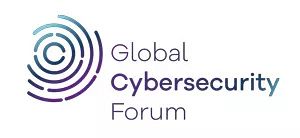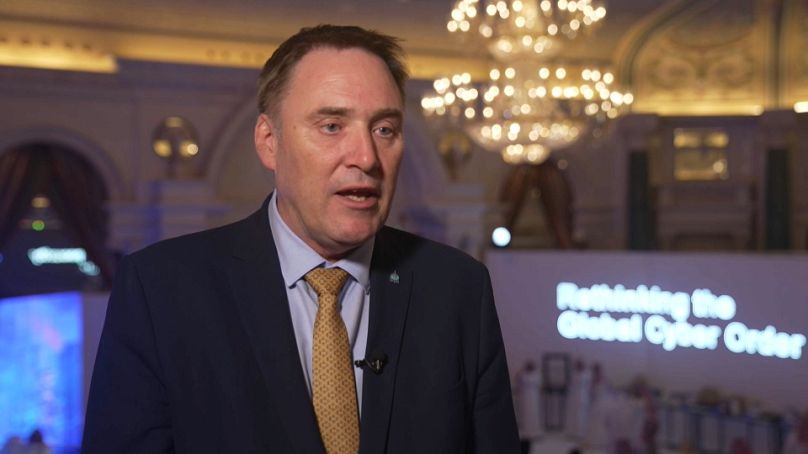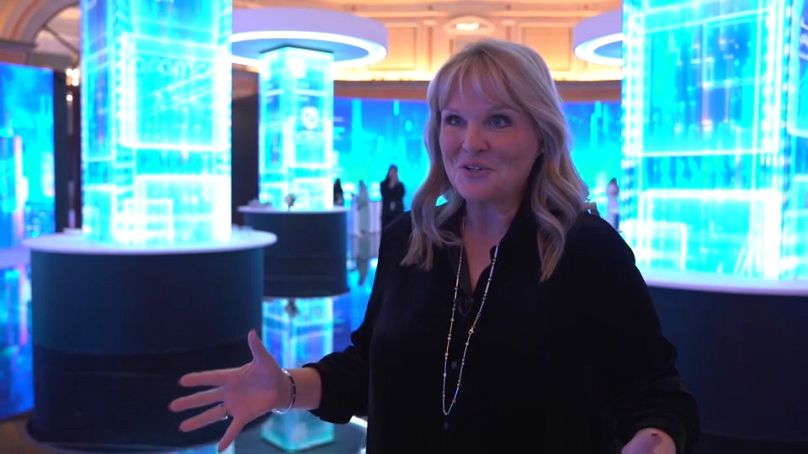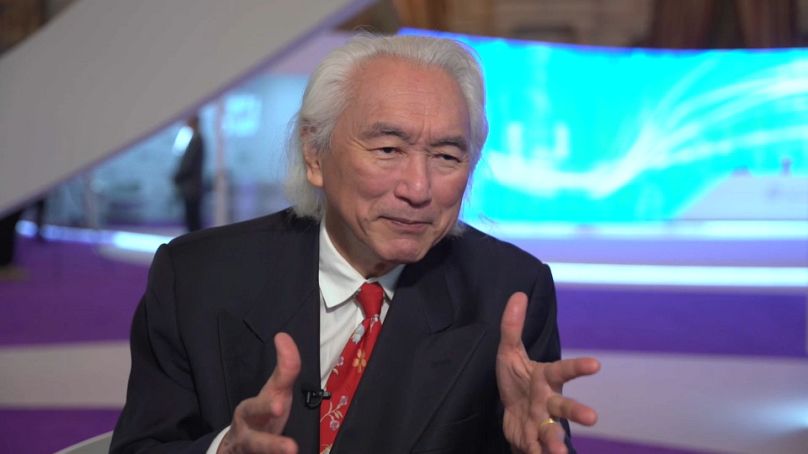Transcending borders and impacting every aspect of people's lives, the cyber landscape is more complex than ever before. The Forum sought to improve peace of mind for parents, business owners, and governments while serving justice to cyber criminals.
Transcending borders and impacting every aspect of people's lives, the cyber landscape is more complex than ever before.
Seeking to address topics from geocyber, cybereconomics, cyberconflicts, online child protection and the future of cyber work, the Global Cybersecurity Forum returned for its second edition in the Saudi Arabian capital, Riyadh.
Global was the forum's ambition, and global was the feeling on the ground, with thought-leaders, innovators, CEOs, academics and public and private sector delegates from more than 100 countries all convening here.
Their ambition is to rethink the global cyber order and their next steps, include more partnerships and more collaboration.
Calling for collective action was the International Criminal Police Organisation's Cybercrime head, who made a case for greater cross-border cooperation and data sharing - given recent successes.
"We have tools and platforms which are secure and we can bring private partners and law enforcement onto, and carry out operations," explains Craig Jones, the Cybercrime Director of Interpol.
The sophistication of cybercrime advancing in tandem with technology, poses the question, ‘Will the good guys ever triumph in the cybercrime race, or forever be playing catch up?’
"Have we ever actually solved crime? No, we haven't." Adds Craig Jones. "It's endemic within our communities. I think the advantage of cybercrime, is that it's online, it's technology-based. We are able to get ahead. By working effectively with the companies that provide the infrastructure and the software, they become the first responders."
The timely topic of safeguarding cybersecurity resilience across the energy supply chain was another key theme of the Global Cybersecurity Forum. A macro perspective offered up by the World Economic Forum, pointed to the current geopolitical environment, drawing people's attention to cybersecurity in general, whilst raising questions at governmental levels about how to literally ‘keep the lights on’.
The most important trend we've seen so far is actually this increased awareness around the threats to our critical infrastructure in energy and health care and financial services. Says Jeremy Jurgens, Managing Director of the World Economic Forum. "I think it's really important that we can actually bring people together, both established players, but as well as new innovators that can actually bring new solutions - using AI technologies and other techniques to actually help us address these threats."
One way to address present and future threats, said a leading cyberpsychologist, is to develop a pre-emptive, proactive, and protective cyber tech sector, not least for children who remain particularly vulnerable online.
"Cybersecurity is fantastic." Declares Professor Mary Aiken, Cyberpsychology Chair, at Capitol Technology University. "It protects your data, your systems, and your networks, but it does not protect what it is to be human online. The great news is, there is evidence of a new emerging sector, the online safety technology sector or safety tech. We have health tech, we have fintech, and now we have safety tech. And I would love to see the Gulf lead in cyberspace by adopting this new sector, investing in and growing the sector."
The problems of today may be well documented, but some argue that tomorrow's technology, especially the next generation of computers, will come with a different set of challenges.
The more education and knowledge sharing about changing technology and evolving threats in cybersecurity, the better, said the futurist. Not least to dispel myths about the relatively new sector.
"Well, when people first hear about the concept of cybersecurity, they immediately conjure up James Bond." Says Professor Michio Kaku, a Theoretical Physicist, at the City University of New York. "They think of spy versus spy. They think of all the shenanigans that nations use to hide truths from each other. This conference is about promoting understanding between different people. It's about counteracting the mistruths and the fake news that's out there. It's about making sure that people can cooperate and promote peace and justice. That's what it's all about."
And that key message was top of mind for delegates as this year's symposium wrapped up. When they assemble next, they hope to have gone some way to improving peace of mind for parents, business owners, and governments while serving justice to cyber criminals looking to disrupt and deceive, in today's fast-paced tech world.















